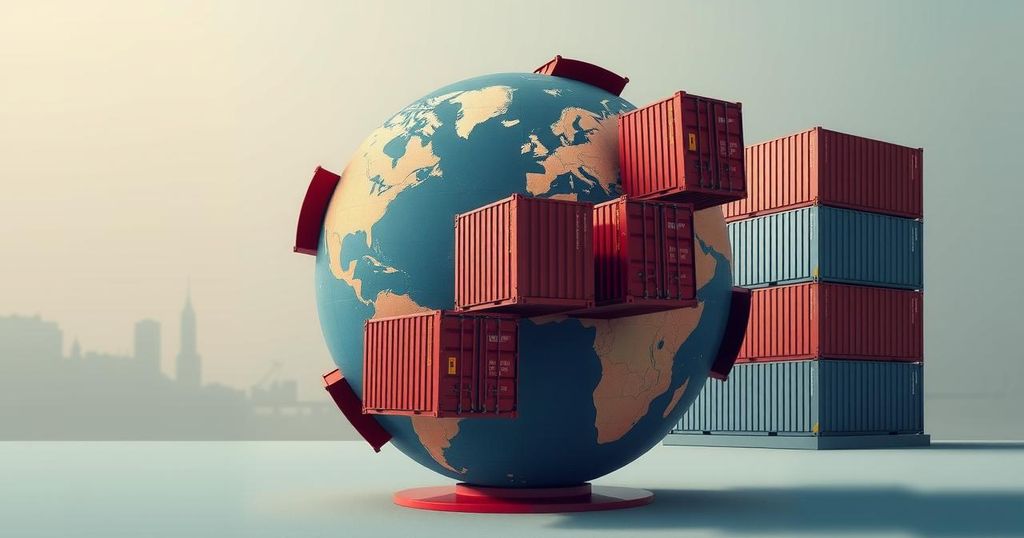Trump plans to announce tariffs against Canada, China, and Mexico, including 25% tariffs on Canada and Mexico and a 10% duty on Chinese goods. Economists warn tariffs may trigger inflation and slow economic growth. The tariffs aim to compel nations to address immigration and drug issues, with concerns about retaliatory responses from these countries and higher prices for American consumers.
Former President Donald Trump is reportedly preparing to announce new tariffs on key trading partners, including Canada, China, and Mexico, reminiscent of threats made during his inauguration. He intends to impose a 25% tariff on both Canada and Mexico, with a 10% duty on Chinese goods expected soon. Economists warn that such tariffs could drive inflation on consumer goods and hinder economic growth as industries absorb increased costs.
The motivation behind these proposed tariffs stems from Trump’s goal to compel foreign nations to take action against the flow of undocumented immigrants and illicit drugs into the U.S. Notably, his prior threats included tariffs of up to 60% on Chinese imports to leverage negotiations with Beijing, particularly concerning fentanyl trafficking.
In recent developments, Colombia agreed to accept deported immigrants following Trump’s tariff threats, illustrating his administration’s approach of pressuring nations into compliance through trade policy. Howard Lutnick, proposed as commerce secretary, indicated that Canada and Mexico could avoid tariffs by effectively controlling fentanyl smuggling.
Experts believe that rather than targeting specific nations, Trump may introduce blanket tariffs across various regions, although the specifics of these measures remain unclear. Economists anticipate some form of tariffs targeting imports from both Canada and Mexico, raising concerns over potential retaliation from these countries.
If tariffs are enacted, Canada is expected to reciprocate with its own tariffs on U.S. imports, while Mexico may focus on specific agricultural tariffs rather than on manufactured goods. Trump’s stated intention to bolster U.S. manufacturing through stricter trade policies may strain international relations, according to trade experts.
Economists are largely in agreement that tariffs would lead to increased prices for American consumers, as businesses generally pass additional costs on to them. The anticipated inflationary effects could see consumer price inflation rise significantly, complicating the Federal Reserve’s approach to monetary policy moving forward.
As Trump prepares to implement these tariffs, the uncertainty surrounding the trade landscape continues to pose challenges to economic stability, suggesting the potential for a turbulent period in U.S. trade relations.
The topic of tariffs against Canada, China, and Mexico stems from former President Trump’s past strategies in trade negotiation and immigration policy. His administration utilized tariffs as a tool not only for economic leverage but also to influence foreign nations’ policies, particularly regarding immigration and drug trafficking. Experts analyze how these tariffs could impact both U.S. consumers and international relationships, while the threat of retaliatory measures adds another layer of complexity to the economic landscape.
In summary, former President Trump’s impending announcement of tariffs on Canada, China, and Mexico exemplifies his strategy of utilizing trade policy to exert pressure on neighboring countries. While intended to bolster U.S. interests, such measures are likely to spur inflation, affect consumer prices, and lead to retaliatory tariffs from affected nations. The full consequences remain to be seen as the new administration navigates its trade policy framework moving forward.
Original Source: www.cbsnews.com






